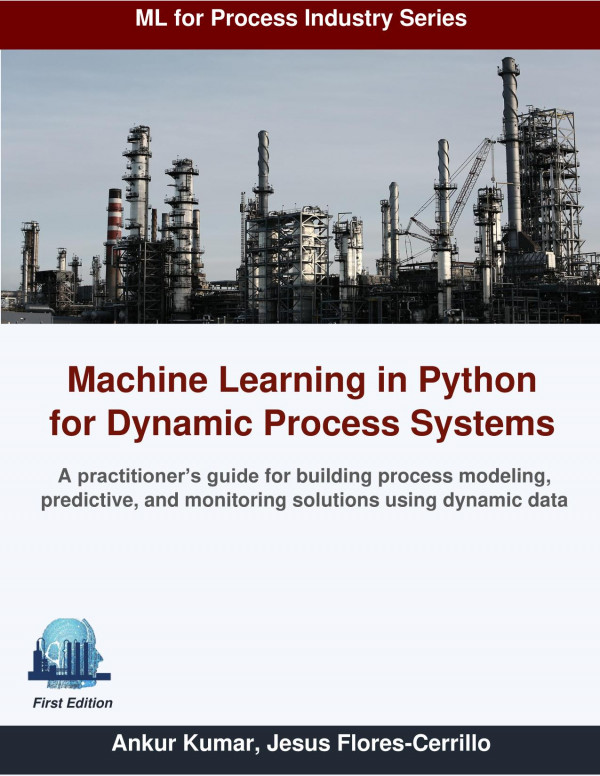Product desciption
Machine Learning In Python For Dynamic Process Systems Ankur Kumar by Ankur Kumar, Jesus Flores-cerrillo instant download after payment.
This book provides a comprehensive coverage of Machine Learning (ML) methods that have proven useful in process industry for dynamic process modeling. Step-by-step instructions, supported with industry-relevant case studies, show (using Python) how to develop solutions for process modeling, process monitoring, etc., using classical and modern methods.
This book is designed to help readers gain a working-level knowledge of machine learning-based dynamic process modeling techniques that have proven useful in process industry. Readers can leverage the concepts learned to build advanced solutions for process monitoring, soft sensing, inferential modeling, predictive maintenance, and process control for dynamic systems. The application-focused approach of the book is reader friendly and easily digestible to the practicing and aspiring process engineers, and data scientists. The authors of this book have drawn from their years of experience in developing data-driven industrial solutions to provide a guided tour along the wide range of available ML methods and declutter the world of machine learning for dynamic process modeling. Applications on time series analysis, process disturbance modeling, system identification, and process fault detection are illustrated with examples. Upon completion, readers will be able to confidently navigate the system identification literature and make judicious selection of modeling approaches suitable for their problems.
This book has been divided into three parts. Part 1 of the book provides perspectives on the importance of ML for dynamic process modeling and lays down the basic foundations of ML-DPM (machine learning for dynamic process modeling). Part 2 provides in-detail presentation of classical ML techniques (such as ARX, FIR, OE, ARMAX, ARIMAX, CVA, NARX, etc.) and has been written keeping in mind the different modeling requirements and process characteristics that determine a model’s suitability for a problem at hand. These include, amongst others, presence of multiple correlated outputs, process nonlinearity, need for low model bias, need to model disturbance signal accurately, etc. Part 3 is focused on artificial neural networks and deep learning.
The following topics are broadly covered:
· Exploratory analysis of dynamic dataset
· Best practices for dynamic modeling
· Linear and discrete-time classical parametric and non-parametric models
· State-space models for MIMO systems
· Nonlinear system identification and closed-loop identification
· Neural networks-based dynamic process modeling
Who should read this book:
The application-oriented approach in this book is meant to give a quick and comprehensive coverage of dynamic modeling methodologies in a coherent, reader-friendly, and easy-to-understand manner. The following categories of readers will find the book useful:
1) Data scientists new to the field of system identification
2) Regular users of commercial process modeling software looking to obtain a deeper understanding of the underlying concepts
3) Practicing process data scientists looking for guidance for developing process modeling and monitoring solutions for dynamic systems
4) Process engineers or process engineering students making their entry into the world of Data Science
Pre-requisites:
No prior experience with Machine Learning or Python is needed. Undergraduate-level knowledge of basic linear algebra and calculus is assumed.


